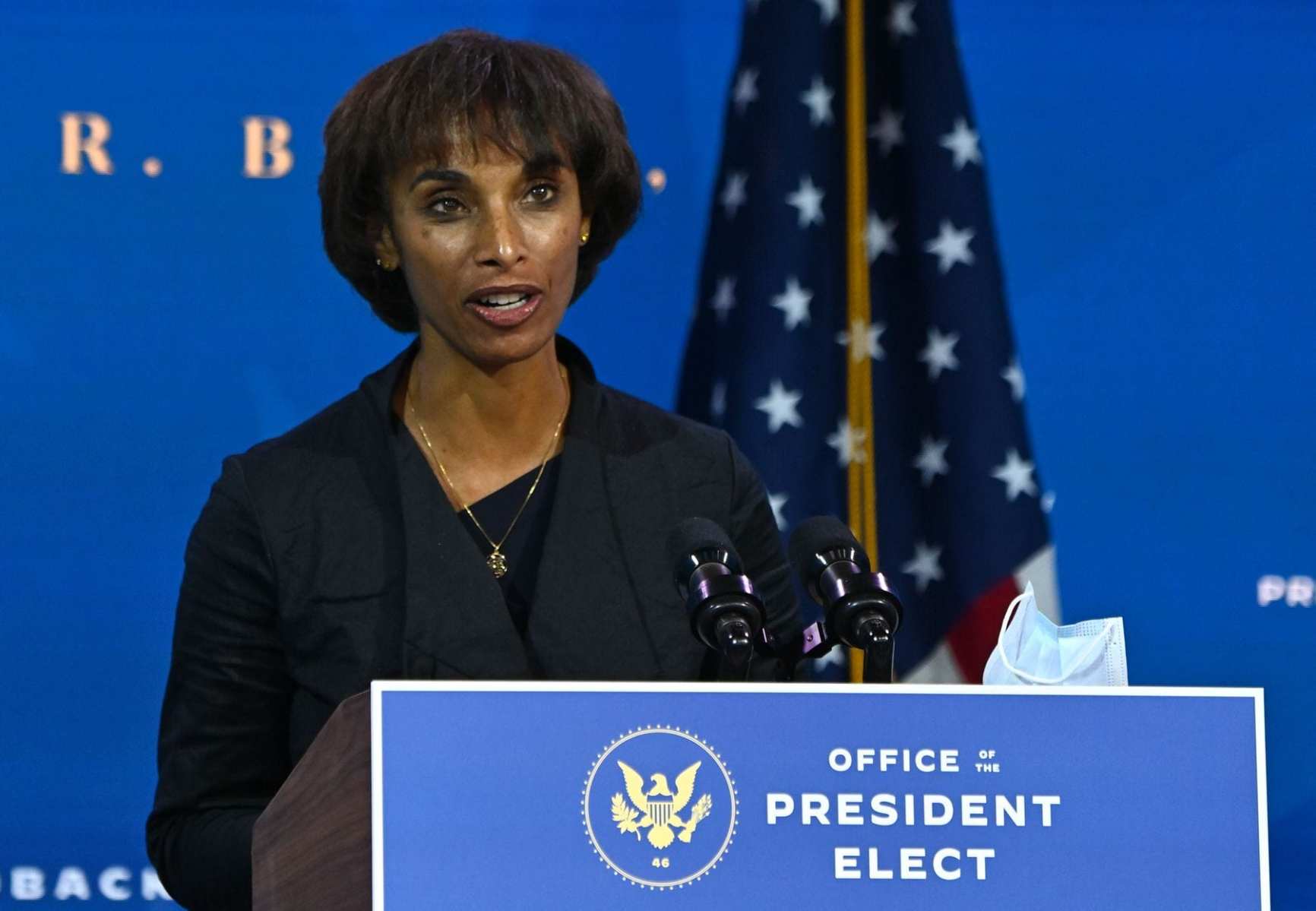In her confirmation hearing Thursday, Cecilia Rouse, President Joe Biden’s nominee to chair his Council of Economic Advisers, questioned the way economists have typically measured downturns like the one she might inherit. Too often, it’s been with a focus on averages — the people in the middle.
If confirmed to the role by the Senate, Rouse’s focus would turn elsewhere.
“Our analyses tell us about average economic growth and the middle of the distribution — but as our economy grows more and more unequal, that analysis fails to capture the experience of the many people who are left behind, particularly people of color,” Rouse said.
That is where she will look, to those most harshly affected by the recession, when crafting a new economic plan that not only carries the country out of the current moment, but addresses the longstanding barriers that have limited upward mobility for people of color.
If confirmed, Rouse, 57, would be the first Black person and fourth woman in the council’s 75-year history to serve as chair. The other two members are longtime Biden advisers Jared Bernstein and Heather Boushey, who is also the president and CEO of the Washington Center for Equitable Growth, a liberal think tank.
A former member of Barack Obama’s Council of Economic Advisers and Bill Clinton’s National Economic Council, Rouse has already been confirmed by the Senate in the past. She also has extensive experience in the field of academia, serving most recently as the dean of the Princeton School of Public and International Affairs.
Her career began during the 1980s recession, when, encouraged by her mother, she took an economics class.
“I was drawn to the discipline because I wanted to know why this was happening. Why had jobs disappeared — and what could be done to bring them back?” Rouse told senators in her opening statement Thursday. “I focused my work on the labor market, and in particular on the impact of education on people’s job prospects, ways to tear down barriers to job growth, and policies to make it possible for more people to achieve long-lasting economic security.”
Rouse said that she was partly drawn to the opportunity of serving as chair to address some of the nation’s critical economic policies that date back decades, to a time when the labor market was completely different.
She specifically cited the unemployment insurance program, established the 1930s and left to states to operate. When the pandemic eliminated jobs at the start of 2020, the federal government had to supplement unemployment insurance programs with its own additional assistance, and in some states, antiquated systems crashed under the weight of applications. For some workers, it took weeks or even months before they saw their first payments.
“Today, the system is not providing the kind of safety net it used to,” Rouse said. “It was designed for short-term unemployment spells, and what we’re observing in our most recent recessions is that unemployment spells are becoming longer and our [unemployment insurance] system was not designed to help there.”
Those are the kinds of policies she said she hopes to take on in the administration, which has vowed to enhance unemployment insurance and reduce inequality by shrinking the wealth gap between Black and White Americans.
Rouse said Thursday that she views the wealth gap as a reflection of a shared national history of discriminatory practices that “continues to replicate itself generation to generation, as those without accumulated wealth cannot pass it on to their children.”
Wealth is also associated with better health and educational outcomes, as well as financial resiliency, a reality that played out this past year when those without accumulated wealth had less to fall back on when jobs disappeared.
People of color suffered the highest unemployment rates of any group this past year, and women of color most of all. Latinas endured the worst losses, with unemployment hitting 20.1 percent in April. Black women’s unemployment reached 16.6 percent at the worst of the crisis. For White men, unemployment never went above 12.3 percent.
“Closing the wealth gap is not about trying to literally take away, but it’s trying to ensure that everybody can participate in this economy,” Rouse said.
Similar to confirmation hearings with other members of Biden’s economic team — including now-Treasury Secretary Janet Yellen and Gina Raimondo, the nominee to lead the Department of Commerce — senators questioned Rouse’s position on Biden’s proposed $1.9 trillion recovery plan, which many have argued is too costly given the strained economic climate.
Rouse said she views the president’s spending proposals as a means to support households, state and local governments, businesses and especially small businesses.
“If we don’t, we run the risk of actually finding ourselves in a downward spiral, because the capacity to deal with our debt is not only the amount that we spend, but the size of our economy, and if we want to keep our economy going, we need to be spending some money,” Rouse said.
She is not expected to face much opposition to confirmation, outlining in her statements that she wants to collaboratively work with members of both parties.
Sen. Pat Toomey, the Republican from Pennsylvania, praised Rouse’s qualifications for the post and said, “I think I’m going to disagree with Dr. Rouse far more often than I agree with respect to individual policy prescriptions. But I think she’s someone that I can work with.”
Rouse was joined in her hearing before the Committee on Banking, Housing, and Urban Affairs by Ohio Rep. Marcia Fudge, who has been tapped by Biden to lead the Department of Housing and Urban Development.
Sen. Sherrod Brown, the Ohio Democrat who is the committee’s incoming chair, said the nomination of both to those positions is particularly poignant in a year when Black Americans have “endured many painful reminders of the yawning gap between the promise of our founding ideals and our failure to make that promise real for everyone.
“Black women will take leading roles in our economic recovery,” Brown said. “This matters on so many levels: It matters for our future that little girls, including Black and Brown girls, see themselves in our leaders from the vice president to our two economic leaders sitting in front of this committee. It matters because of the perspective and the life experiences these two Black women bring to these jobs.”






